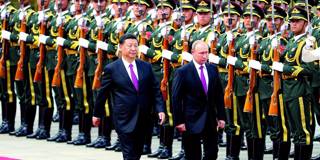OnPoint Subscriber Exclusive

Europe’s Hard Choices in 2020
In a world where Europe's liberal model of shared sovereignty provokes hostility from the United States, China, and Russia alike, the European Union can no longer depend on others to safeguard its strategic autonomy. In the year ahead, the EU must focus on how to strengthen its economic and military capacities.
PARIS – For the first time since 1957, Europe finds itself in a situation where three major powers – the United States, China, and Russia – have an interest in weakening it. They may squeeze the European Union in very different ways, but they share an essential hostility to the EU’s governance model.